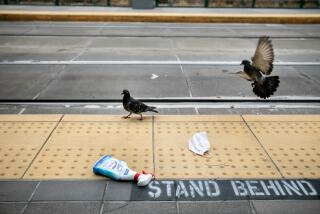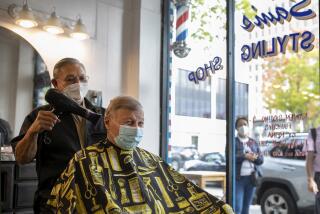Column: Time for seniors to roll over and die so younger generations can get back to work? Not so fast
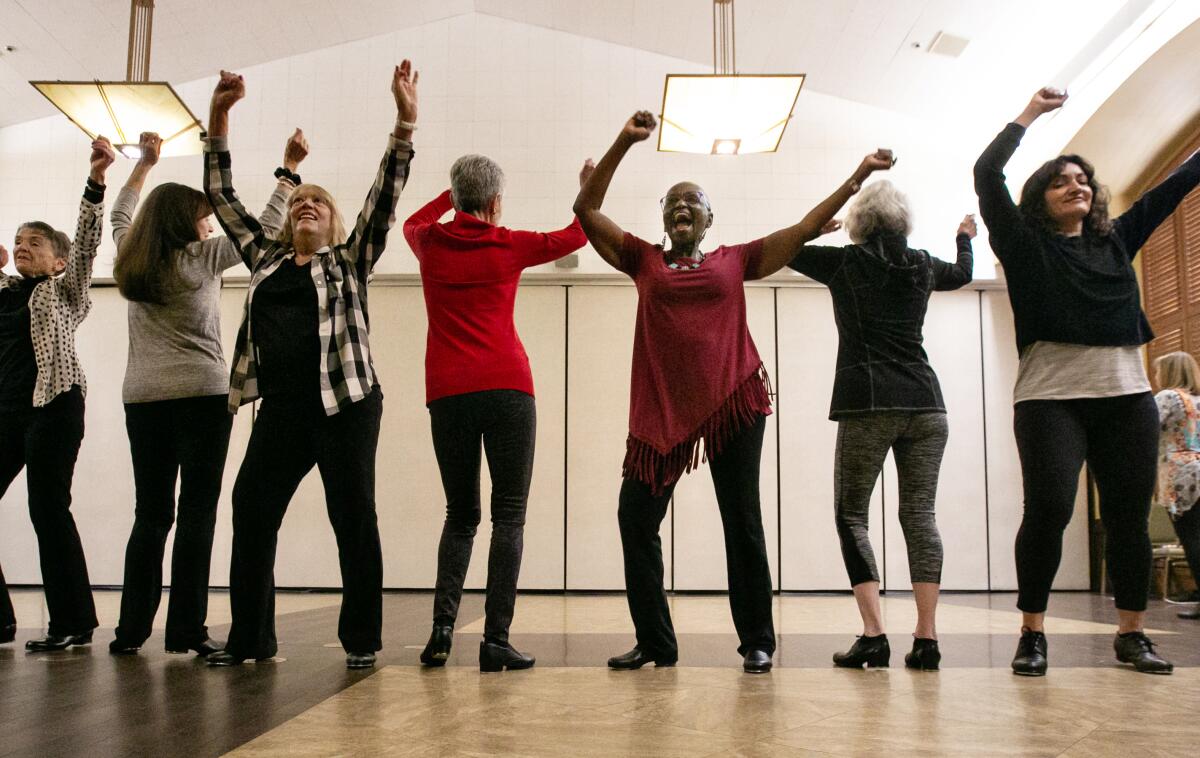
I’ve got a Medicare card in my wallet and a target on my back.
“Sacrifice the weak, reopen,” said a protest sign in Tennessee.
In Antioch, next door to the Bay Area town I grew up in, a planning commissioner said that “the sick, the old, the injured,” along with the homeless, should be left to die from COVID-19 and ease the burden on society.
Even the 70-year-old lieutenant governor of Texas offered himself up as a sacrificial lamb, saying if more people have to die to save the economy for future generations, “I’m all in.”
And California Gov. Gavin Newsom initially advised hospitals to prioritize younger people for care during the pandemic, although those guidelines were later retracted.
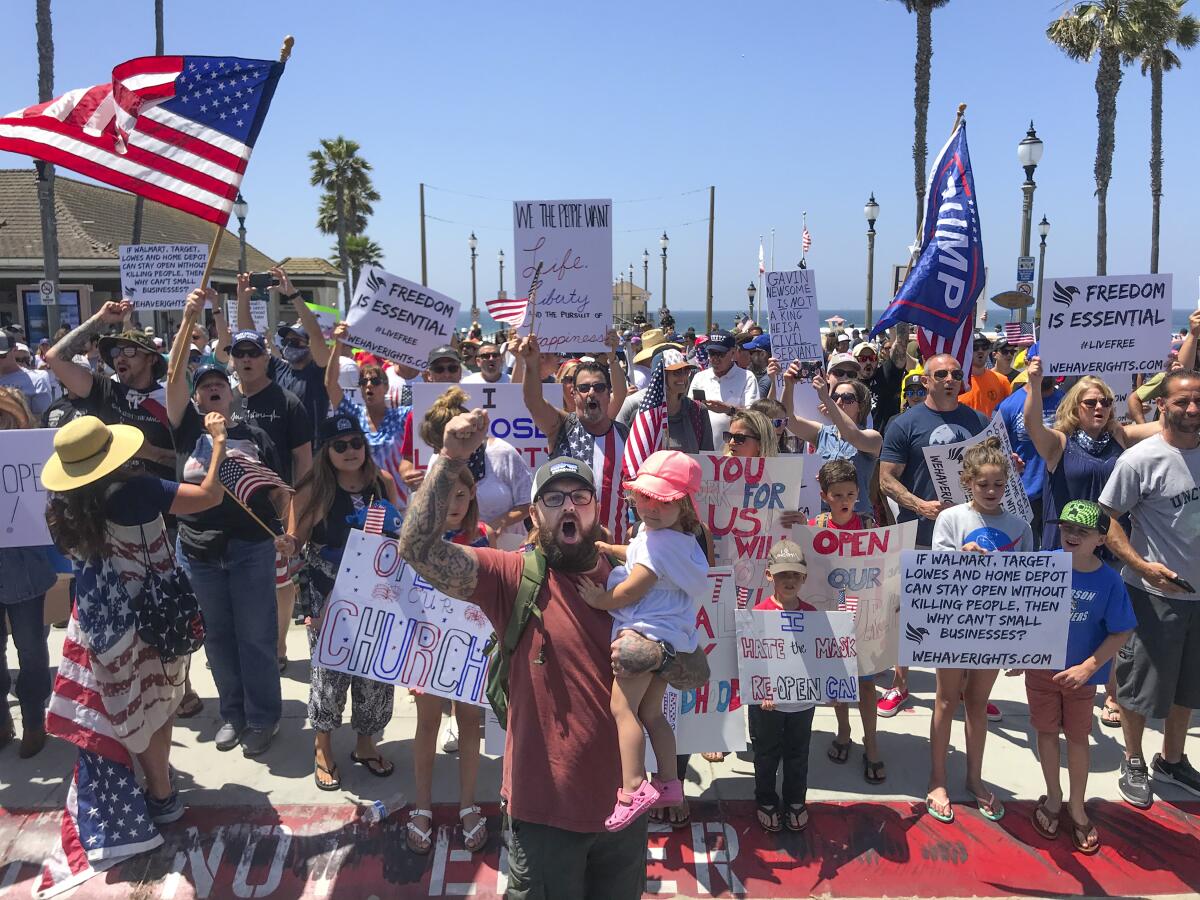
Am I going to have to dig through all the junk in my garage and pull out my musket to defend myself?
It’s no accident that nursing homes — with too few supplies and resources for patients and employees — have become killing fields in a nation that has underfunded public health and failed to provide proper state and federal oversight of profiteering eldercare companies. We geezers are seen as expendable.
I’d like to think those who are saying we have to choose between returning to work and saving lives — as if we can’t do both — are in a minority. But as my colleague Laura Newberry reported, ageism is running amok as we square off against each other during an epidemic that is claiming thousands of lives daily, with a majority of the victims up there in years.
“What we are seeing in public discourse is an increasing portrayal of those over the age of 70 as being all alike with regard to being helpless, frail and unable to contribute to society,” eight alarmed psychologists from around the world wrote in a paper for the Gerontological Society of America.
I didn’t think much of it at the time, but when I went to pick up some takeout the other evening, two young folks blew past me perilously close, one on a bike and one on a scooter. Now I’m wondering if maybe they were members of a posse looking to herd gray-haired weaklings off to the nursing homes.
I exaggerate a bit, sure. But the pandemic is bringing out our best instincts and our worst, as well.
As I’ve said in the past, I think we need to prioritize health spending, and I question the wisdom of using every medical procedure available to keep terminally ill people alive only so they can suffer a little longer.
But this isn’t about whether it’s wise to prolong death. What I’m seeing now is an ugly strain of divisiveness and a coldhearted, me-first, survival-of-the-fittest mentality.
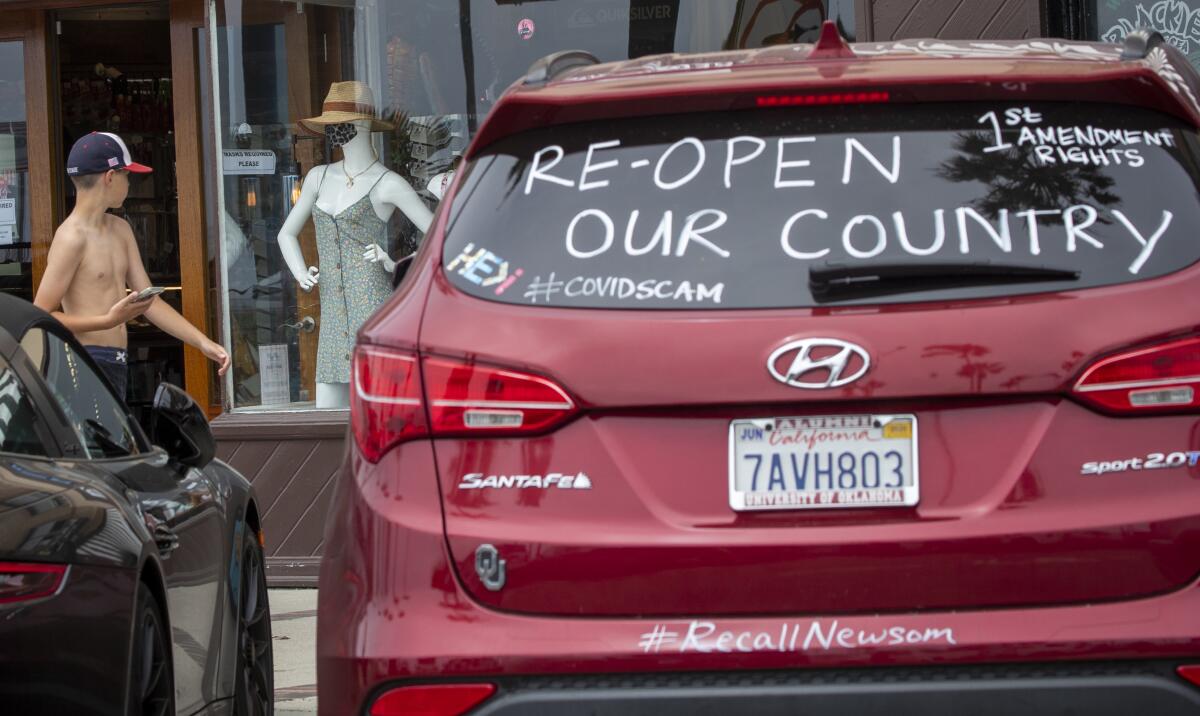
“I feel that we live in a society where youth and beauty are always” idealized, said Akila Gibbs, executive director of the Pasadena Senior Center, which is checking up regularly on 3,000 of its most isolated members and delivering 160 to 170 meals daily to those in need.
“Some of these people haven’t eaten in four days,” said Gibbs.
“Because government calls Social Security an entitlement,” Gibbs said, “I think it sends the message that older adults are weighing down the economy.… If you’re lucky, everyone is going to grow older, so all these things you don’t care about now, you’re going to want someone to care about when you’re older.”
All the talk of pulling together back when the pandemic was just beginning to rage seems quaint and naive now, with daily images of protesters demanding a return to normal, even though more lives would surely be lost.
In Huntington Beach, without masks or distancing, they want it now.
The hell with Grandpa.
In Michigan, where armed protesters marched on the statehouse like an invading army, they want it now.
The hell with Grandma.
In Virginia, Florida, North Carolina and so many other places, they want it now.
Who cares if, by marching en masse, someone gets infected, another nurse or doctor is exposed and a few more geezers drop dead?
They want it now even though there’s still not enough testing or tracing, there’s still no cure or vaccine, and we haven’t met the sensible conditions for reopening laid out in a rare moment of sanity by President Trump himself.
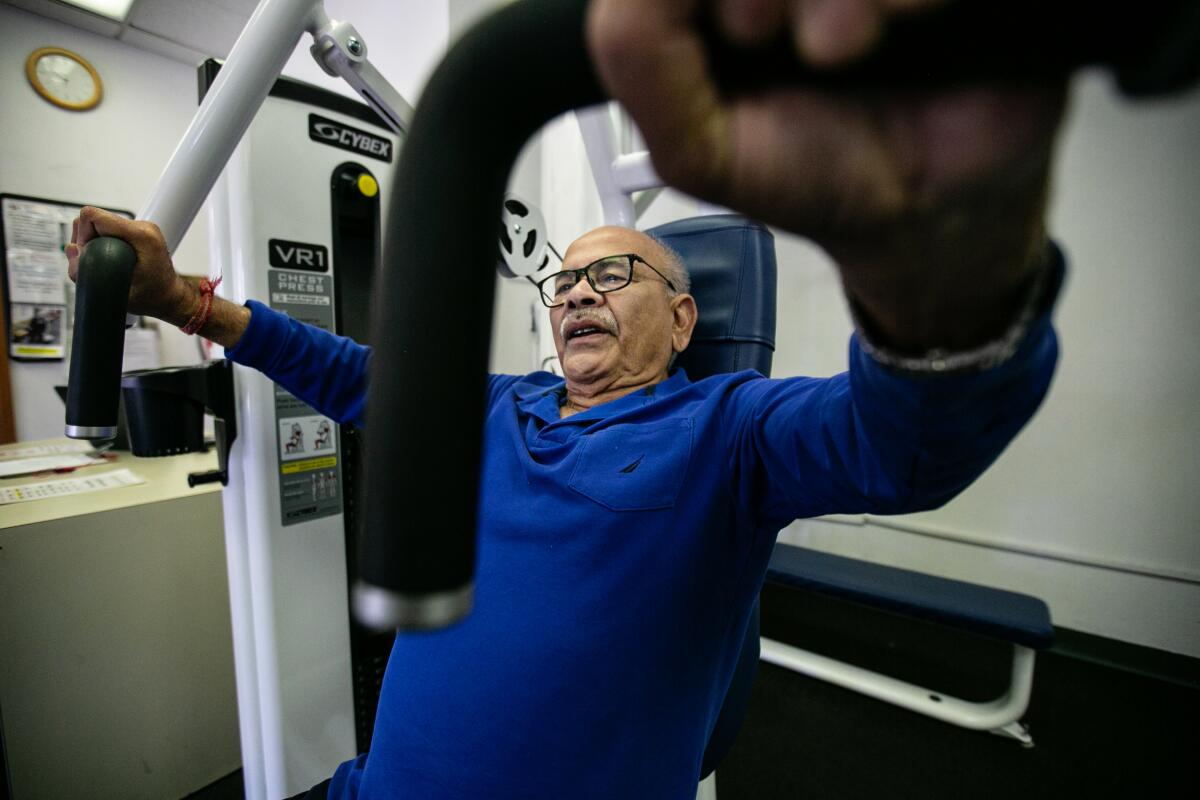
They want it even though a consensus of experts — including Trump’s own advisers — insist that if we move too quickly we will pay in funerals we can’t even attend.
But how can we be surprised by the protests or the boorish, me-first attitudes?
If President Trump spent a tenth as much time expressing and appealing to unity and empathy as he has lashing out at his perceived enemies and filling out his own report card with A’s, we’d be in a better place.
If he wore a mask, we wouldn’t have so many jackbooted rebels refusing to do so, as if that’s somehow brave rather than idiotic and disrespectful.
If the 73-year-old president demanded caution and respect for elders and everyone else, rather than treating pitchfork anarchists like patriots, lives could be saved.
But if our president doesn’t make the best case for why seniors shouldn’t be sacrificed, consider that the presidents of South Korea and Germany, both of whom pulled their countries together to mount effective responses to the virus, are also in the senior citizen category.
I want, you want, we all want a return to something resembling normal, because people are hurting, they’re broke and they’re restless. And we do have to begin very gradually reopening parks, beaches, businesses, schools and everything else within reason, but with new standards of distancing and protection.
We know we’re dealing with a highly contagious and lethal virus, we know the hard work of distancing and patience have saved lives, and we know about the great generations of those before us who made heroic sacrifices for the good of one and all.
Sure, if you’ve got only one ventilator and two very sick COVID-19 patients in the emergency room, an 85-year-old with underlying medical issues and an otherwise healthy 40-year-old, by all means try to save the 40-year-old first.
But it’s a tougher call for me if the 40-year-old got infected at a mosh pit “back to normal” rally while waving a “give me liberty” sign.
More to Read
Sign up for Essential California
The most important California stories and recommendations in your inbox every morning.
You may occasionally receive promotional content from the Los Angeles Times.


